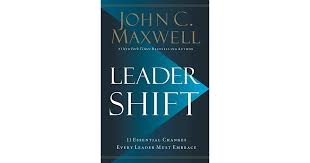
No matter what happens, you’re always going to have those critics and haters. You just have to learn to deal with that. – Tim Tebow
During his last years in office, Winston Churchill attended an official ceremony. Several rows behind him two gentlemen began whispering, “That’s Winston Churchill.” “They say he is getting senile.” “They say he should step aside and leave the running of the nation to more dynamic and capable men.”
When the ceremony was over, Churchill turned to the two men and said, “Gentlemen, they also say he is deaf!”
Criticism is a way of life for the leader. It may not be a pleasant part of it, but it’s a constant companion nonetheless.
Learning how to deal with criticism is important for you as a leader. In part one of “When Critics Come Calling”, I shared three common reactions we have when critics come calling:
- We take it personally
- We retaliate
- We put up walls
Any of those sound familiar?
While it’s just in our human nature to take on any or all of these postures, we also have to understand the unintended consequences when we do. While we don’t typically like criticism, we can cut ourselves off from voices around us that can help us if we are willing to listen.
So when critics come calling, why not take these questions into consideration.
What’s true about the criticism?
Not all criticism from your critics is meant to be harmful. And while your feelings or ego might be bruised, perhaps some introspection is in order. When you hear from your critics, stop and consider what parts have merit. From there you can determine if it’s just a case of sour grapes on their part, or if it’s something you work on to make better.
In the long run, your critic may be doing you a favor by pointing out a blind spot you didn’t see. Click To TweetOn the other hand, your critic may just be blowing off steam and it has no merit. But before dismissing it out of hand, as yourself if it’s true.
What’s the motive behind the criticism?
When hearing from your critics – directly or indirectly- you have to take into consideration the motivation behind it. Does the person have an ax to grind with you? Is there politics at play? Understanding the motivation behind the criticism will enable you to better know how to handle it.
A word of encouragement to you as a leader here – don’t look for ulterior motives that don’t exist. Don’t let your imagination run wild. Be more concerned as to why a person with a legitimate issue was not comfortable in approaching you to begin with.
What can I learn from criticism?
When the critics come calling is a good time to reflect upon your leadership. Is there any validity to the criticism? Was the criticism helpful? Some of your best growth opportunities will come not when everything is smooth and calm. It will come when you feel everyone is against you. Click To Tweet
Final Thoughts
“The final proof of criticism,” said Elbert Hubbard, “lies in being able to endure criticism without resentment.” And this will always be the test of your leadership. So the next time critics come calling ask yourself is it true? What’s the motive? What can I learn? Above all, keep your attitude in check and keep climbing upward.
©2020 Doug Dickerson











 Recently, I was reading back through
Recently, I was reading back through